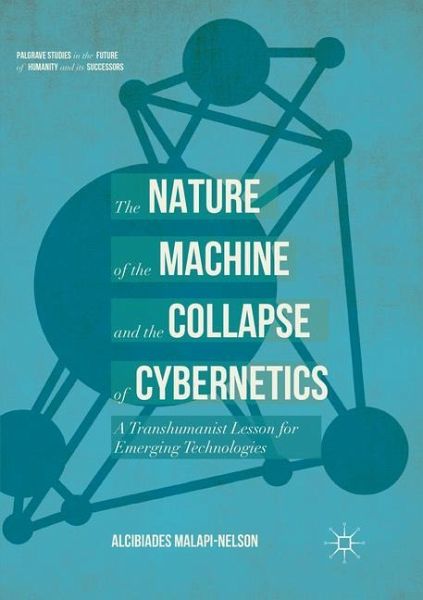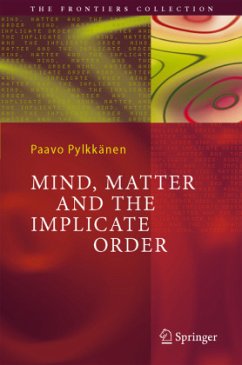
The Nature of the Machine and the Collapse of Cybernetics
A Transhumanist Lesson for Emerging Technologies
Versandkostenfrei!
Versandfertig in 6-10 Tagen
64,99 €
inkl. MwSt.
Weitere Ausgaben:

PAYBACK Punkte
32 °P sammeln!
This book is a philosophical exploration of the theoretical causes behind the collapse of classical cybernetics, as well as the lesson that this episode can provide to current emergent technologies. Alcibiades Malapi-Nelson advances the idea that the cybernetic understanding of the nature of a machine entails ontological and epistemological consequences that created both material and theoretical conundrums. However, he proposes that given our current state of materials research, scientific practices, and research tools, there might be a way for cybernetics to flourish this time.The book starts...
This book is a philosophical exploration of the theoretical causes behind the collapse of classical cybernetics, as well as the lesson that this episode can provide to current emergent technologies. Alcibiades Malapi-Nelson advances the idea that the cybernetic understanding of the nature of a machine entails ontological and epistemological consequences that created both material and theoretical conundrums. However, he proposes that given our current state of materials research, scientific practices, and research tools, there might be a way for cybernetics to flourish this time.
The book starts with a historical and theoretical articulation of cybernetics in order to proceed with a philosophical explanation of its collapse-emphasizing the work of Alan Turing, Ross Ashby and John von Neumann. Subsequently, Malapi-Nelson unveils the common metaphysical signature shared between cybernetics and emergent technologies, identifying this signature as transhumanist in nature. Finally, avenues of research that may allow these disruptive technologies to circumvent the cybernetic fate are indicated. It is proposed that emerging technologies ultimately entail an affirmation of humanity.
The book starts with a historical and theoretical articulation of cybernetics in order to proceed with a philosophical explanation of its collapse-emphasizing the work of Alan Turing, Ross Ashby and John von Neumann. Subsequently, Malapi-Nelson unveils the common metaphysical signature shared between cybernetics and emergent technologies, identifying this signature as transhumanist in nature. Finally, avenues of research that may allow these disruptive technologies to circumvent the cybernetic fate are indicated. It is proposed that emerging technologies ultimately entail an affirmation of humanity.














